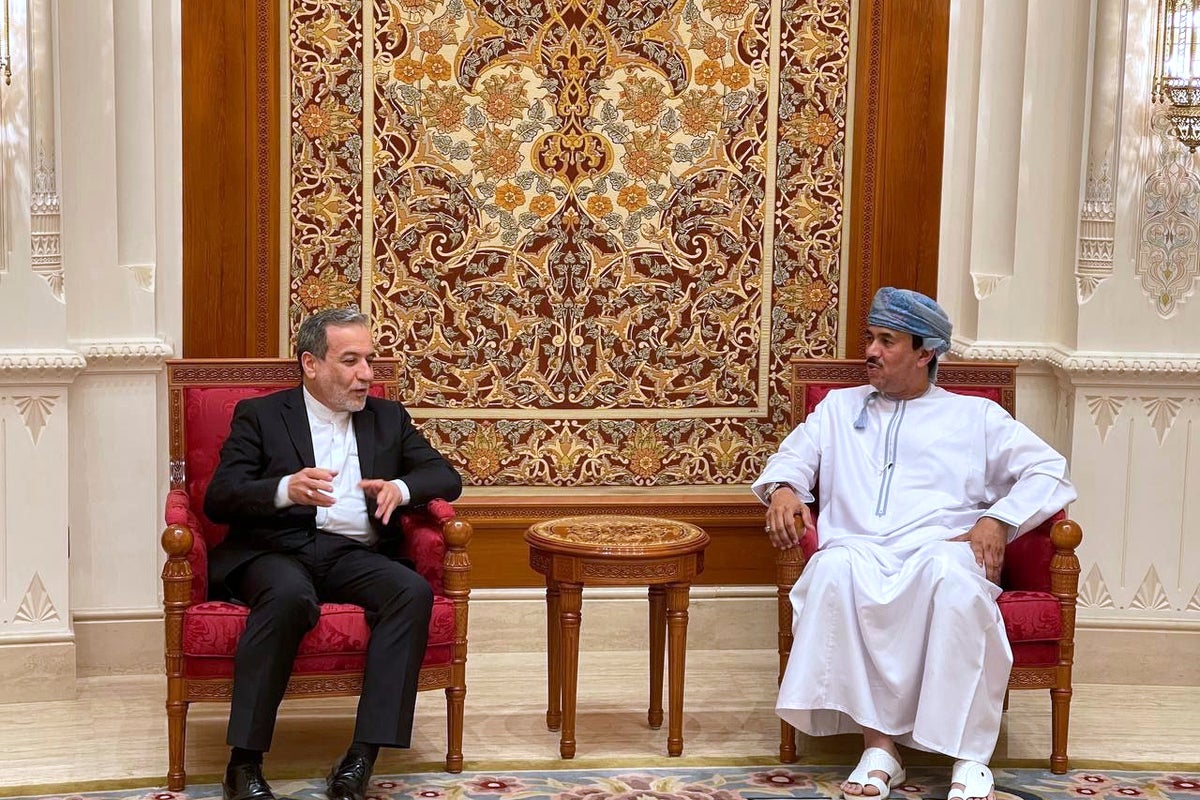
Donald Trump’s Mideast envoy Steve Witkoff is set to meet Iranian foreign minister Abbas Araghchi in Oman on Sunday as negotiations over a nuclear deal remain deadlocked.
Mr Witkoff is travelling to Muscat to discuss Tehran’s response to America’s latest proposal for a nuclear agreement.
Iran said on Monday that it would hand over a counterproposal after deeming the US offer, which insisted on Tehran stopping uranium enrichment, “unacceptable”.
Speaking on a podcast on Monday, Mr Trump said he was becoming less confident that Tehran would agree to halt uranium enrichment as part of a deal with Washington.
The US president has been pushing for a new nuclear deal that would curb Iran’s nuclear programme, warning that military action remained on the table if an agreement could not be reached.
Iran and the US have held five rounds of negotiations since April, primarily mediated by Oman, to work out a new deal, with Washington focused on preventing Tehran from obtaining nuclear weapons.
Iran has long maintained that it has no intention of developing nuclear weapons and that its nuclear programme is solely for peaceful use.
As Washington had pushed for a speedy agreement, Tehran has ruled out making a deal without clarity on sanctions relief.
In his first presidency, Mr Trump withdrew the US from a 2015 nuclear agreement between Iran and world powers, which imposed strict limits on Tehran’s uranium enrichment in exchange for relief from sanctions.
Relations between Tehran and Washington have been strained for decades. Iran accuses the US of interfering in its internal affairs, from orchestrating the 1953 coup against then prime minister Mohammad Mosaddegh to the 2020 assassination of top military commander Qassem Soleimani.
The US, in turn, cites Iran’s support for armed groups across the Middle East – Hamas in occupied Palestinian, Hezbollah in Lebanon and the Houthis in Yemen – as evidence of its destabilising role and threat to Washington’s interests and its chief ally Israel.
The armed groups Iran is accused of backing describe themselves as part of the “Axis of Resistance” to Israeli and American influence in the region.
On Wednesday, Mr Trump said he was withdrawing some American personnel from the Middle East because “it could be a dangerous place”.
The evacuation decision comes at a volatile moment when Mr Trump’s attempt to broker a nuclear deal with Iran seems to be at a standstill and US intelligence suggests that Israel is preparing for a possible strike on Iranian nuclear facilities.
